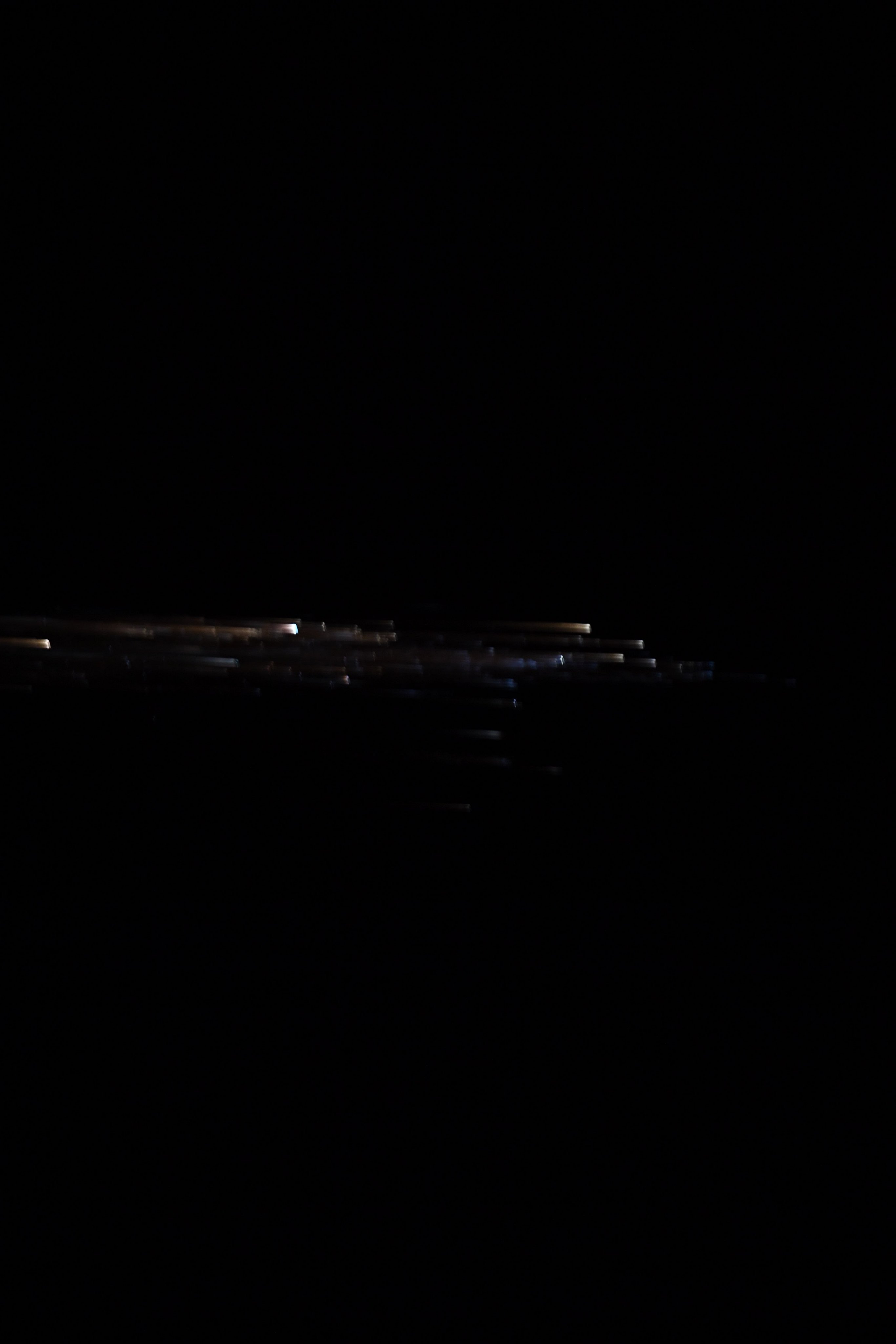A Russian Space Cargo Ship Just Fell to Earth. See Its Fiery Demise!
"It looked like a big firework," astronaut says.
Editor's note: Russia successfully launched a new cargo ship, Progress 73, to the space station on July 31. Read our launch and docking wrap story here!
So long, Progress 72, and thanks for all the stuff.
The Russian-built Progress cargo ship went down in flames (on purpose) on Monday (July 29) and a space station astronaut made sure to capture its fiery doom on camera.

"Said goodbye to Progress 72 today to make room for 73P showing up on Wednesday. Caught this shot of it during reentry," NASA astronaut Nick Hague wrote on Twitter Monday. "It looked like a big firework that lasted minutes — flickering, sparking, and pulsing with brightness before it faded into the darkness."
Related: How Russia's Progress Cargo Ships Work (Infographic)
Hague watched Progress 72's demise from the International Space Station, where he and five other space travelers bid farewell to the uncrewed cargo ship as it undocked itself from the Russian-built Pirs module after four months linked to the orbiting lab.
"It will reenter the Earth's atmosphere loaded with trash and discarded gear for a fiery, but safe disposal over the Pacific Ocean," NASA officials wrote in a status update Monday.
Get the Space.com Newsletter
Breaking space news, the latest updates on rocket launches, skywatching events and more!
And reenter Progress 72 did.
As Hague's photo shows, the disposable spacecraft broke apart into a shower of bits as it burned up in Earth's atmosphere. The cosmic funeral pyre marked the end of a delivery mission that began with an April 4 launch to the station.
Progress 72 delivered 3.7 tons of supplies and gear to the station during its mission. That haul included 104 lbs. (47 kilograms) of oxygen and air; 926 lbs. (420 kg) of water; 3,117 lbs. (1,413 kg) of spare parts and gear; and 3,375 lbs. (1,530 kg) of propellant. Its departure makes way for a replacement cargo ship, Progress 73.
A Russian Soyuz rocket is scheduled to launch Progress 73 from the Baikonur Cosmodrome in Kazakhstan on Wednesday (July 31) at 8:10 a.m. EDT (1210 GMT). The mission comes less than a week after the arrival of a SpaceX Dragon cargo ship at the station. That mission launched into orbit Thursday (July 25) and arrived on Saturday (July 27).
Progress 73 is expected to deliver nearly 3 tons of supplies to the space station at 11:35 a.m. EDT (1535 GMT) after making just two orbits around Earth in a super-fast flight. It will stay at the station until December, when it will also depart to burn up in Earth's atmosphere.
You can watch the Progress 73 launch live here Wednesday, courtesy of NASA TV. NASA's launch webcast will begin at 7:45 a.m. EDT (1145 GMT), with docking coverage to begin at 10:45 a.m. EDT (1445 GMT).
Russia's Progress spacecraft are workhorse vehicles that look similar to the crewed Soyuz vehicles used by Roscosmos, the country's space agency, to ferry crews to and from the International Space Station. But instead of a crew capsule, Progress vehicles carry propellant, experiments and other much-needed supplies to keep astronauts and cosmonauts well stocked.
- Space Station's Robotic Cargo Ship Fleet (A Photo Guide)
- SpaceX Dragon Cargo Ship Arrives at Space Station for Record 3rd Time
- Roscosmos: Russia's Space Centers and Launch Sites in Pictures
Email Tariq Malik at tmalik@space.com or follow him @tariqjmalik. Follow us @Spacedotcom and Facebook.
Join our Space Forums to keep talking space on the latest missions, night sky and more! And if you have a news tip, correction or comment, let us know at: community@space.com.

Tariq is the Editor-in-Chief of Space.com and joined the team in 2001, first as an intern and staff writer, and later as an editor. He covers human spaceflight, exploration and space science, as well as skywatching and entertainment. He became Space.com's Managing Editor in 2009 and Editor-in-Chief in 2019. Before joining Space.com, Tariq was a staff reporter for The Los Angeles Times covering education and city beats in La Habra, Fullerton and Huntington Beach. In October 2022, Tariq received the Harry Kolcum Award for excellence in space reporting from the National Space Club Florida Committee. He is also an Eagle Scout (yes, he has the Space Exploration merit badge) and went to Space Camp four times as a kid and a fifth time as an adult. He has journalism degrees from the University of Southern California and New York University. You can find Tariq at Space.com and as the co-host to the This Week In Space podcast with space historian Rod Pyle on the TWiT network. To see his latest project, you can follow Tariq on Twitter @tariqjmalik.









